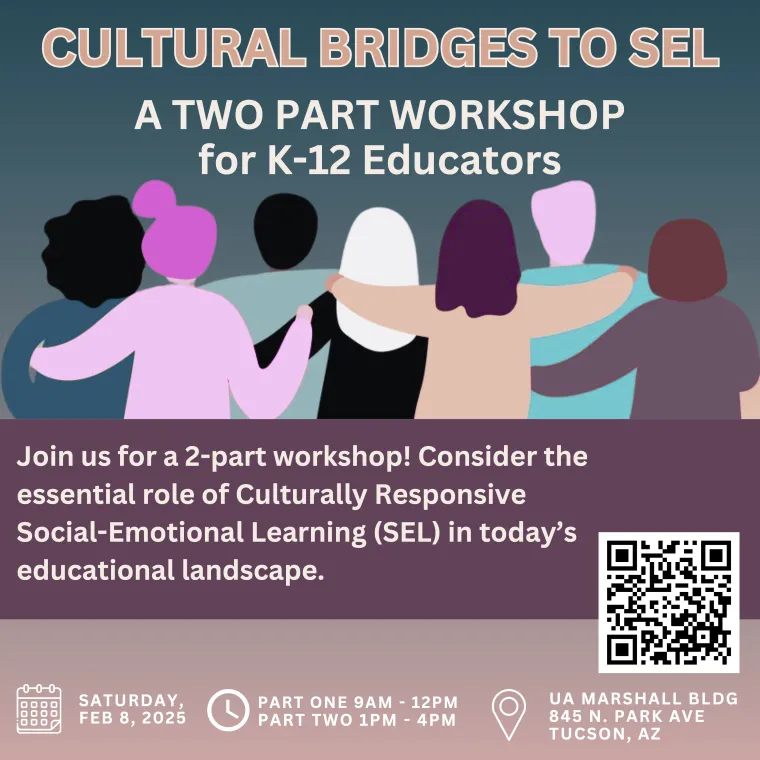A Two-Part Workshop for K-12 Educators

You’re invited to an engaging two-part workshop offering free professional development for all K-12 educators, including in-service and pre-service teachers, educational aides, and administrators. Participants will receive a certificate for 3 hours of professional development per session. A light breakfast will be provided at the morning session and lunch will be provided during the one hour break before the afternoon session.
In Part One, we will explore the essential role of Culturally Responsive Social-Emotional Learning (SEL) in today’s educational landscape. SEL equips students with vital life skills while cultural responsiveness ensures that every voice is heard and valued. This session will delve into the significance of SEL and cultural responsiveness, highlighting how they foster a supportive, inclusive classroom environment where students can thrive both academically and socially. If you attended the Cultural Bridges to SEL workshop in April 2024, you do not need to attend Part One.
In Part Two, e will build on the foundation established in the first session by focusing on the practical implementation of SEL and cultural responsiveness strategies in the classroom. This interactive session will feature small group discussions and hands-on activities to explore classroom applicability and address specific implications for culturally and linguistically diverse student populations.
During the workshops, we will:
- Define Cultural Responsiveness to establish a shared understanding.
- Explore the core components of Social-Emotional Learning (SEL) and address common misconceptions.
- Examine the benefits of, and effective strategies for, integrating cultural responsiveness into SEL curricula in the classroom.
- Consider the implications of SEL specifically for students from East Asian, Latin American, and Middle Eastern backgrounds.
- Access resources and support available through the Centers for East Asian Studies, Latin American Studies, and Middle Eastern Studies.

